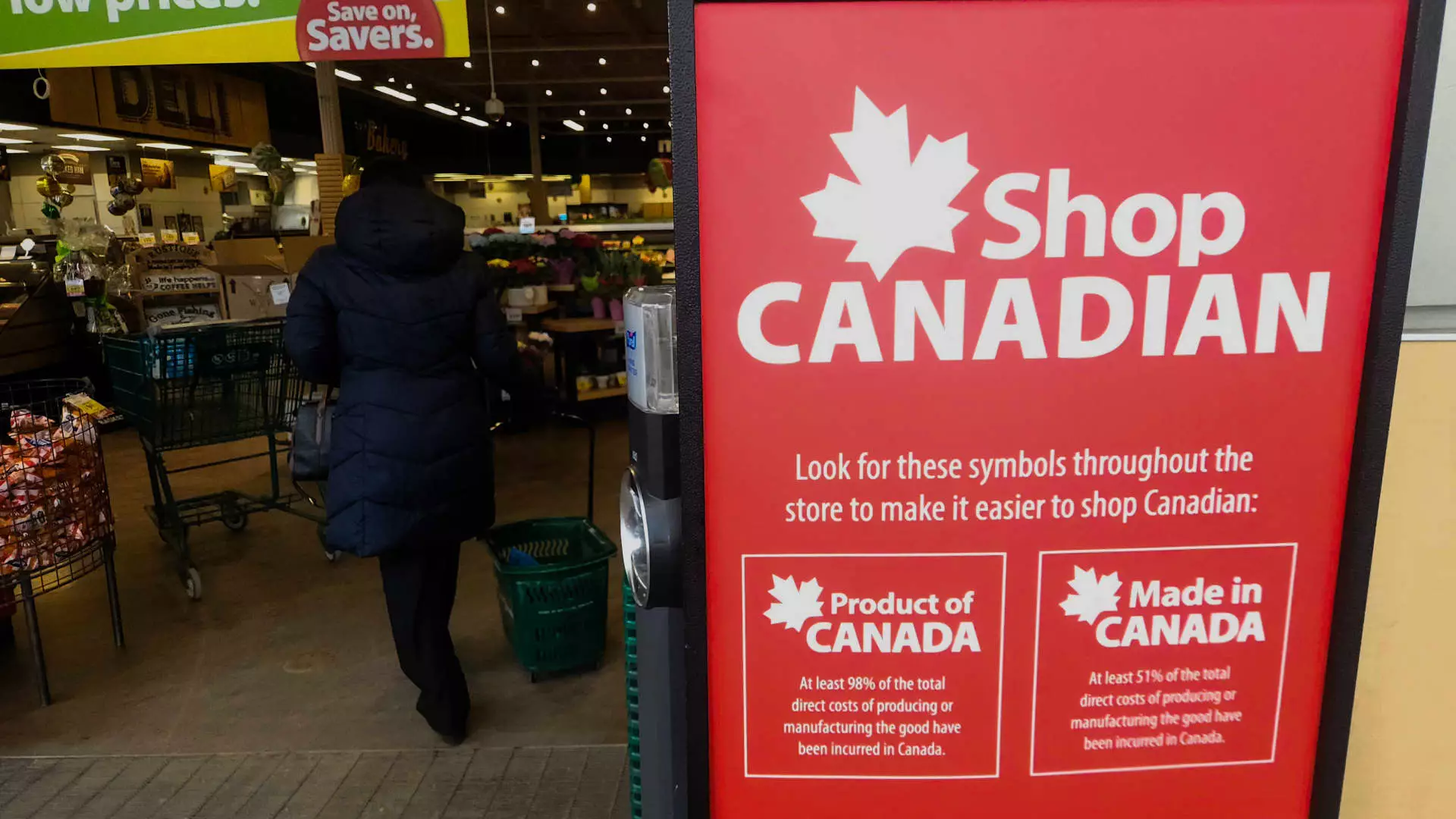The recent trade war initiated by the Trump administration has ushered in an atmosphere thick with uncertainty and resentment among small businesses that straddle the U.S.-Canada border. As tariffs rise, so does a palpable sense of betrayal, especially within a relationship that has traditionally been based on mutual dependency and trust. In 2024 alone, trade between the U.S. and Canada reached a staggering $762.1 billion, a clear indication of how intertwined the two economies have become. Yet, the political bravado surrounding tariffs has not only threatened this financial stability but has ignited emotional distress among entrepreneurs who feel they are caught in a dehumanizing game of geopolitical chess.
Split Loyalties: The Business Response
For industries reliant on cross-border trade, tariffs have turned contracts into contentious battlegrounds. Corinne Pohlmann, a key figure at the Canadian Federation of Independent Business, has provided insights into the psychological toll these tariffs have wrought on her members. Many Canadian businesses are now compelled to reevaluate their partnerships with U.S. suppliers, often engaging in painful negotiations as they try to absorb the costs that this chess match mandates. This is particularly true for smaller establishments, which lack the financial cushion that larger corporations possess. As a result, businesses are not just losing revenue; they are also losing trust and, more critically, their sense of community.
The mostly emotional value of trust in business cannot be overstated. For many entrepreneurs, a handshake deal across the border used to be enough; now, it’s fraught with uncertainty. The act of crossing into U.S. territory for supplies or partnerships has fallen under a cloud of suspicion and fear. The once harmonious relationships that allowed businesses to flourish are now at risk of being severed, eroded by tariffs that make even the most mundane of transactions a burden.
Innovation and Adaptation: The Silver Lining?
Nevertheless, amid the chaos, there is a wave of creative strategies emerging from the frustration. Some Canadian businesses, like Balzac’s Coffee Roasters, have approached the situation with humor and ingenuity. By rebranding their Americano as the “Canadiano,” they not only communicate their Canadian pride but also foster a sense of community among consumers who seek to support local businesses in a time of hardship. Similarly, grocery chains are employing clever marketing tactics like clearly labeling local products with Canadian flags to drive home the message of national unity during tough political climates.
This is not merely a desperate attempt to adapt; it’s a dynamic resurgence of national pride and local identity that emphasizes resilience. However, while innovation in branding offers a temporary reprieve from economic anxiety, it does not address the larger systemic issues at play. The emotional scars inflicted by these tariffs will take years, if not decades, to mend, and many businesses are already calculating whether to diversify or pivot away from counterproductive partnerships.
The Future of Trade Relations
Even should the tariffs be lifted or significantly reduced, one must ponder whether the scars of betrayal will be easily forgotten. Pohlmann’s remarks about an enduring lack of trust encapsulate a truth that many business leaders are reluctant to admit—a newly fractured relationship may never fully heal. As U.S. officials contemplate restoring trade partnerships, Canadian firms must weigh the consequences of resuming business with an unreliable partner.
Every negotiation now comes with a checklist of liabilities that were once inconceivable in the friendly trade landscape of yesteryears. Emotional and financial investments into partnerships are now muddied by uncertainty—trust is no longer a given. The specter of tariffs looms large over every conversation, a reminder of how fragile relationships can become under political duress.
The Cultural Impact of Tariffs
Ultimately, tariffs do not solely impact businesses; the cultural fabric of the U.S.-Canada relationship hangs in the balance. The trade war has engendered a sense of alienation, turning neighbors into adversaries in the eyes of many. The painful reminder that businesses once flourishing in collaborative environments are now pitted against each other reinforces the notion that economic policies reverberate beyond dollars and cents.
In this climate, it is essential for leaders on both sides of the border to consider how trade policies are effectively reshaping the cultural narratives that unite us. As the dream of seamless trade and dialogue gives way to barriers, the hope for a future marked by collaboration seems increasingly dim. The restoration of trust may depend less on policy changes and more on the willingness of both nations to engage with one another in a spirit of genuine respect and collaboration.
By raising our voices, innovating solutions, and recognizing the intricate web of human relationships affected by political decisions, we can begin to mend the frayed bonds of trust that have long linked the U.S. and Canada. Failure to do so may not only endanger businesses but could ultimately compromise the idea of two nations sharing not just a border but a future.

